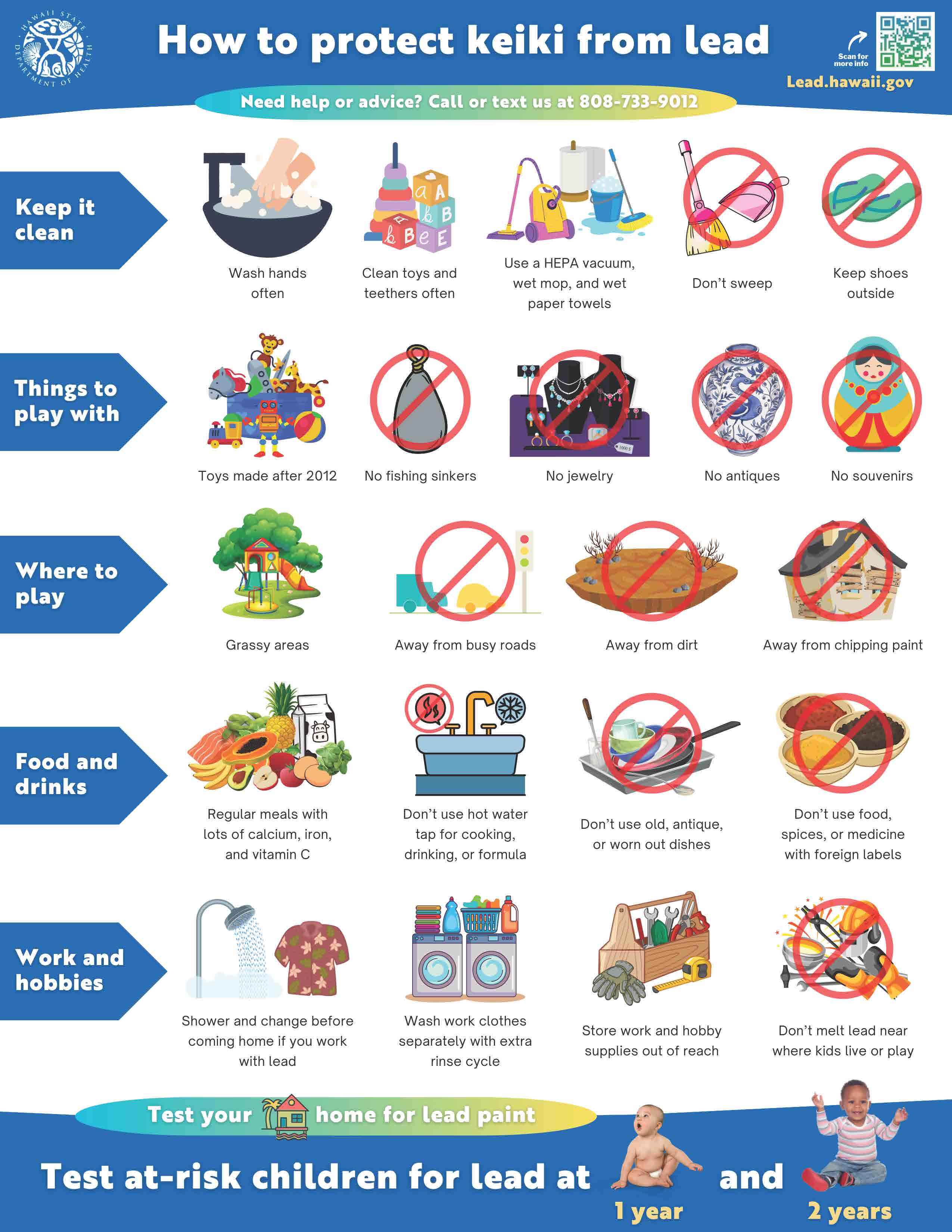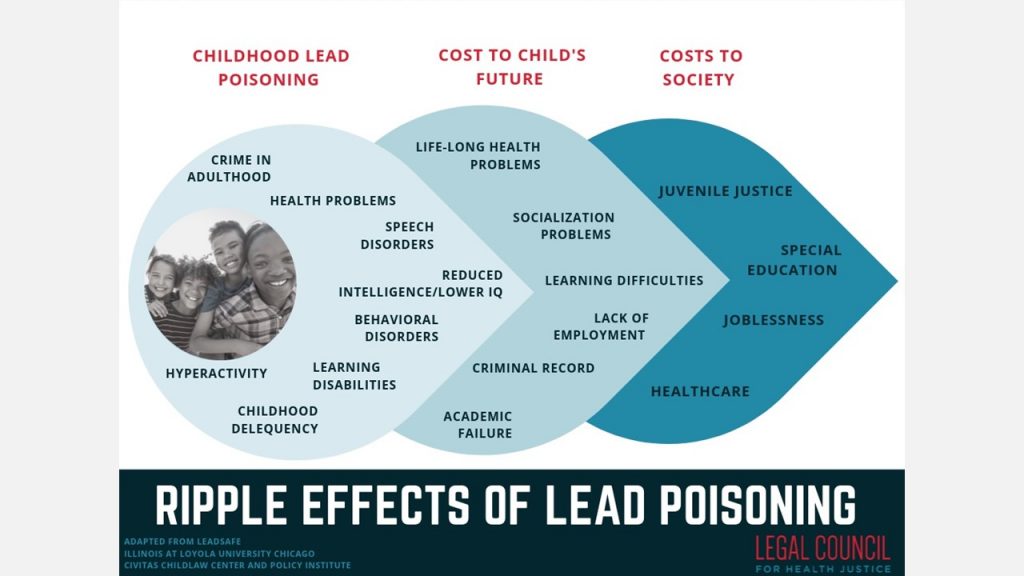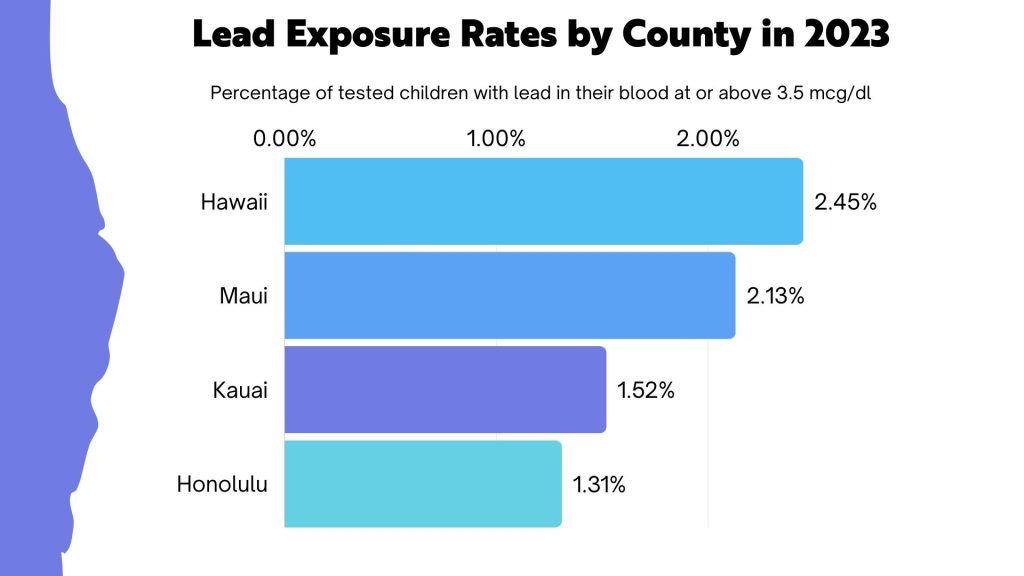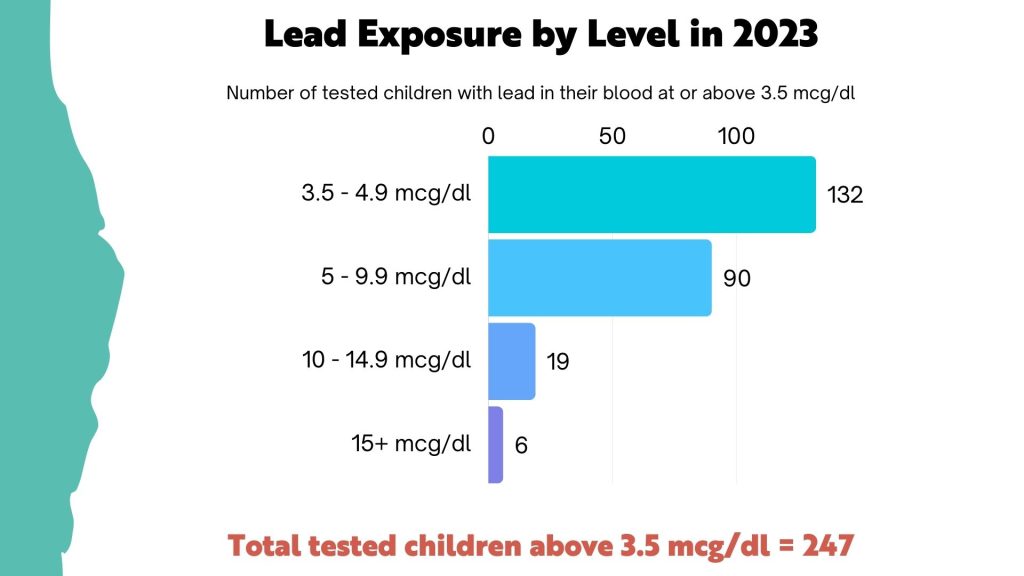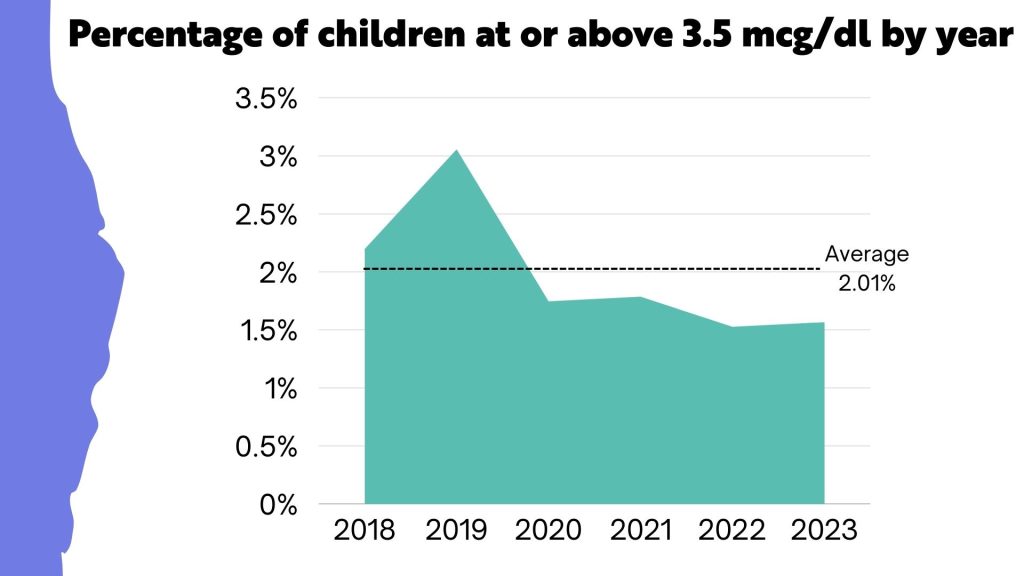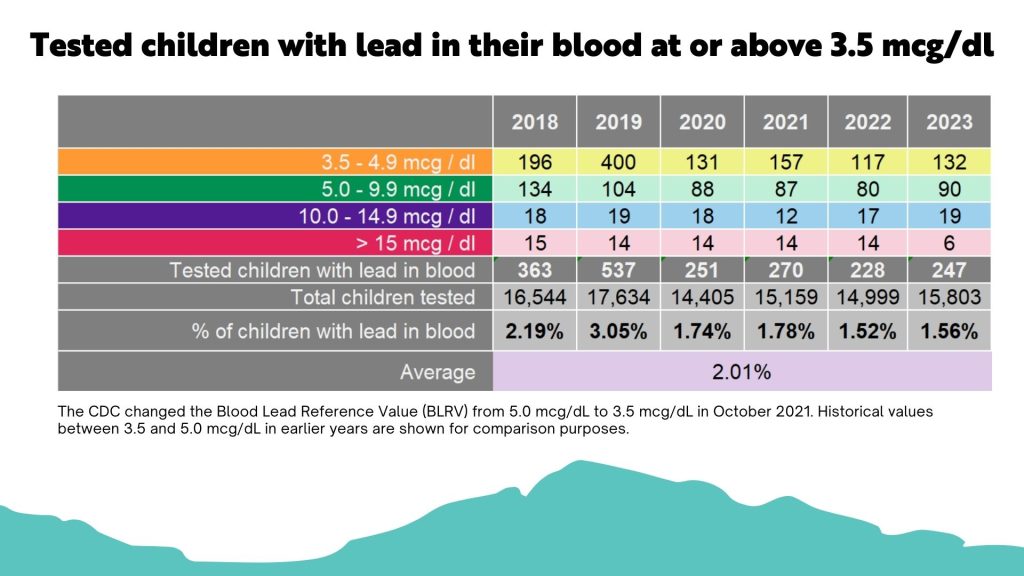
Why Keep Children Away From Lead?
Most children with lead poisoning don’t feel, look, or act sick, but even a little lead in a child’s blood can hurt their ability to learn, pay attention, and do well in school. You can give them a huge boost in school and for the rest of the lives by learning more and taking a few simple steps today. Call or text us at 808-733-9012 for free help and advice. We are here to help the entire community (property owners, parents, grandparents, uncles, aunties, and more) keep children away from lead.
Why is Lead Dangerous?
Lead is a dangerous metal used in a lot of things, It hurts children when it gets into their bodies. As children start to crawl and walk, they may put things with lead or lead dust into their mouths or put fingers into their mouths after touching things. Even if you find out your child has lead in their body, there are many important things you can do to help. Call or text us at 808-733-9012 today.
There are many types of lead sources in Hawaii like old paint, soil, dust, old toys, jewelry, antiques, souvenirs, fishing tackle, keys, dishes, food, spices, water, jobs, and hobbies. Paint is the most common source of lead in Hawaii. Lead was used in house paint until 1978. Lead dust from old paint falling apart can get on things inside and outside a building. Soil can also have lead in it especially along busy roads or near the outside of buildings.
Bringing lead home from work and hobbies can hurt your family and friends. It can damage the brain, nervous system, kidneys, and reproductive system. Children and people who are pregnant are at highest risk of lead poisoning, but a recent study suggests that lead exposure is dangerous for adults too even at low levels.
People may be exposed to lead from work or hobbies if they:
- Grind, cut, drill, sand, scrape, or blast surfaces that are coated with lead paint.
- Tear down structures that have been painted with lead-based paint.
- Remodel and repair structures with lead paint, pipes, or fittings.
- Cut through cables that contain lead.
- Pour powders containing lead pigment.
- Use heat guns to remove paint from doors, windows, and other surfaces.
- Weld or solder lead-containing materials, such as electronics, stained glass, or radiators.
- Torch cut-coated and uncoated metal.
- Shoot leaded bullets at a firing range.
- Make bullets or fishing sinkers.
- Use lead weights for fishing or scuba diving.
- Make stained glass or pottery.
- Handle storage batteries, work on radiators, paint car parts, or use lubricants.
Keep adult work and hobby supplies out of the reach of children, never melt lead near where children live or play, and learn how to work lead-safe to protect family and friends.
How Can I Help My Child?
A simple blood test is the only way to know if a child has lead in their bodies. Children should get tested at 1 and 2 years of age, and later if never tested before. Testing is required and FREE with MedQUEST/Medicaid. Ask your child’s health care provider about a simple blood test. It is okay to test at other times too if you or your doctor thinks your child may have lead in their bodies.
It is also important to encourage children’s curiosity and desire to learn. Your child uses everyday experiences as a way to grow and understand the world. You can help your child learn and grow by spending one-on-one time with your child, doing fun developmental activities, and enrolling your child in an early childhood program. The Hi’ilei Developmental Screening Program offers FREE developmental screenings, information on community resources, and a list of fun activities to help your children grow and learn. Families can complete a developmental screening online or receive a questionnaire by mail.
Are There Special Rules About Lead Paint?
About 3 out of every 4 homes built before 1978 have lead-based paint. The older the home, the higher the risk. Lead dust can be spread when painted surfaces like windows and doors bump or rub together, and when paint cracks, peels, or is disturbed during renovations and repairs. You cannot see lead dust, but it can get on things inside and outside a building like shoes, toys, food, fingers, dirt, or almost anything.Any renovation, repair, or painting project in a pre-1978 home or building can easily create dangerous lead dust. The US Environmental Protection Agency (EPA) requires these projects to be performed by lead-safe certified contractors and has strengthened enforcement recently with record fines against violators including a $20,750,000 fine in 2020.
Property owners, landlords, condo associations, childcare operators, real estate professionals, property management firms, and contractors all have responsibilities to understand.
Even if you are not planning any repairs, renovations, or painting, you still have responsibilities to inform and notify tenants and buyers about lead paint.
Anyone can report violations to the EPA here.
How Do I Find a Lead-Safe Contractor?
You can verify that a contractor is certified by checking the EPA website or by calling the National Lead Information Center at 1-800-424-LEAD (5323). You can also ask to see a copy of the contractor’s firm certification. Here are a few additional questions to ask.
- Ask if the contractor is trained to perform lead-safe work practices and ask to see a copy of their EPA training certificate.
- Make sure your contractor can explain clearly the details of the job and how the firm will minimize lead hazards during the work process.
- Ask what lead-safe methods will be used to set up and perform the job.
- Ask for references from at least three recent jobs involving buildings built before 1978, and speak to each personally.
- Always make sure the contract is clear about how the work will be set up, performed and cleaned.
How Do I Test My Home For Lead?
There are two recommended ways to test your home for lead:
- Hire a Certified Inspector/Assessor: The best way to find out whether there are lead hazards in your home or yard is to hire a Hawaii State Certified Lead Inspector/Risk Assessor to complete a lead inspection. See the Lead Firm List for a directory of consultants and contractors registered with the State of Hawaii that can be hired to perform lead-related services. You can also use this search engine provided by EPA.
- Collect Samples and Send Them to a Lab: If you decide to collect samples yourself, be sure to follow proper procedures outlined below. Lead test results are only as good as your testing procedures. The most important areas to test for lead are where your child spends a lot of time, where there is chipping paint or bare soil, and/or where you plan to renovate. Wash your hands and your tools with soap and water after each sample you collect. The samples will need to be sent to a laboratory for testing. We recommend a National Lead Laboratory Accredited Laboratory (NLLAP) for paint and soil and a Hawaii State Department of Health Certified Lab for drinking water. Call the laboratory you choose ahead of time for more specific instructions on collection methods, mailing guidelines, and documentation.
- Paint Samples: If you have different colored paint, it is a good idea to collect them as separate samples. Tape a clean, plastic bag beneath some paint you want to test. Use a clean scraper or knife to scrape at least the size of a quarter amount of paint into the bag. Be sure to scrape off all the layers of paint, not just the top coat. Try not to get any drywall or wood that is under the paint in the bag. Seal the bag and label it with where the sample was collected (i.e. Sample #1 – bathroom wall).
- Paint is considered hazardous lead-based paint when it tests greater than or equal to:
- 5,000 ppm (parts per million); or
- 0.5% by weight
- Paint is considered hazardous lead-based paint when it tests greater than or equal to:
- Soil Samples: Bare soil where your child frequents or plays should be the first to be tested. Use a large, clean trowel or spoon to scoop the top 1/2 inch of dirt (approximately 1 cup) into a clean, plastic bag. Collect the sample from the top of the soil that you want to test. If there are paint chips in the soil, these are okay to include in the sample. Seal the bag and label it with where the sample was collected (i.e. Sample #2 – playground). Watch this video for more information.
- Soil is considered hazardous for lead when it tests greater than or equal to:
- 200 ppm for residential properties
- Soil is considered hazardous for lead when it tests greater than or equal to:
- Water Samples: Two types of samples should be collected from each faucet used for drinking or cooking. The first sample is called a “first draw” sample and identifies whether there may be lead in the faucet fixture. To collect this sample, fill a 250 mL bottle with water from a faucet that has not been used for 8-18 hours. The second type of sample is called a “flush” sample and identifies whether there may be lead in the pipes. To collect this sample, let the same faucet run for at least 30 seconds and then fill another 250 mL bottle with water. Repeat this process for each faucet you are testing.
- There is no consensus on what level requires action. The EPA action level is 15 part per billion (ppb); but this is not a health-based standard, and many experts believe no amount of lead in drinking water is safe.
- For comparison purposes, the American Academy of Pediatrics (AAP) recommends that school water fountains should not exceed 1 ppb, and the Food and Drug Administration (FDA) requires bottled water to be less than 5 ppb.
- If the “first draw” sample contains lead and the “flush” sample does not, it is likely that the faucet fixture is causing lead contamination.
- If both samples contain lead, it is likely that the pipes are causing lead contamination. The faucet fixture may also contain lead.
- There is no consensus on what level requires action. The EPA action level is 15 part per billion (ppb); but this is not a health-based standard, and many experts believe no amount of lead in drinking water is safe.
- Dust Samples: Dust samples require specific materials and expertise. Please call us at 808-733-9012 for free help and advice.
- Dust is considered hazardous for lead when it tests greater than or equal to:
- 10 mcg/sq ft (micrograms per square foot) on floors
- 100 mcg/sq ft on interior window sills
- Dust is considered hazardous for lead when it tests greater than or equal to:
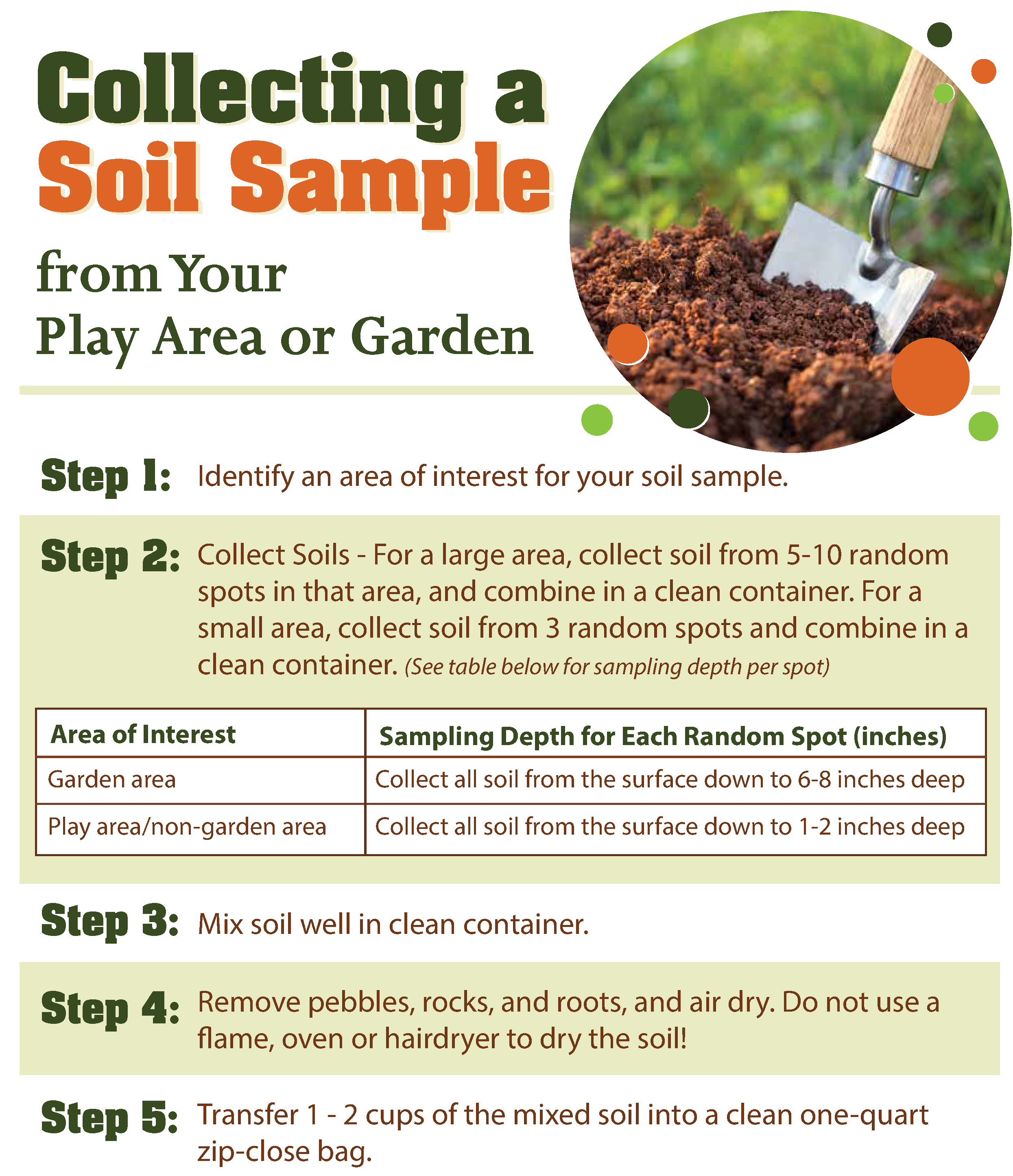
- Paint Samples: If you have different colored paint, it is a good idea to collect them as separate samples. Tape a clean, plastic bag beneath some paint you want to test. Use a clean scraper or knife to scrape at least the size of a quarter amount of paint into the bag. Be sure to scrape off all the layers of paint, not just the top coat. Try not to get any drywall or wood that is under the paint in the bag. Seal the bag and label it with where the sample was collected (i.e. Sample #1 – bathroom wall).
Can I Use Lead Test Kits From a Hardware Store?
Lead test kits are commercially available at most paint and hardware stores. They contain swabs that change color when rubbed against a surface that contains hazardous levels of lead. Be sure to follow all instructions on the package and test ALL layers of paint by using a clean, very sharp knife to cut a small x-shape to expose all painted layers down to the bare surface before using the swab. If you don’t use the swab correctly, the test results will not be valid. These tests are only screening tools that give limited information about paint in one area that you test. Do not make the mistake of using these tests to prove that you don’t have lead paint. Get areas tested professionally before starting repairs or renovations.
Free Help for Families and Caregivers
Hi’ilei Developmental Screening Program – Department of Health
Early Intervention (0-3 yrs) – Department of Health (automatic eligibility with venous level of 10 mcg/dl)
Special Education (3-5 yrs) – Department of Education
Help with Food and Nutrition (WIC) – Department of Health
Connect with Other Families – Family Hui
Problem Solving and Advice – The Parent Line
Additional Information
Developmental Milestones – Centers for Disease Control and Prevention
Latest Recalls – Applesauce Packets Cinnamon Other Products
Information About Lead in Catchment Water – Safe Drinking Water Branch
Lead Hotline – National Lead Information Center
Lead Poisoning Information – Hawaii Poison Center
Call, Text, or Email Us for Free Help
The Hawaii Childhood Lead Poisoning Prevention Program (HI-CLPPP) is committed to helping the community:
- Prevent children from being exposed to lead.
- Identify children already exposed to lead so the source can be removed.
- Link families with recommended services.
Send mail
741 Sunset Avenue
Honolulu, Hawaii 96816
Send email
[email protected]
Call or text
808-733-9012




